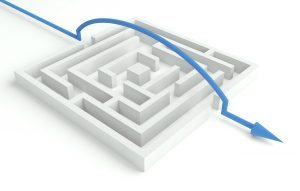
Pre-approvals are certainly beneficial. However, they can also be very disappointing if you are not prepared to know what they actually mean.
They DON’T mean…
They don’t mean that you have a mortgage. Until there is a Purchase Agreement (a written up contract to purchase a property) actually submitted to a bank and a commitment from the bank offered to the client, there is no mortgage. Your bank will often say, “You are pre-approved on a mortgage based on a specific rate that is being offered during this time.” Factors such as the amount of income you bring in, the amount of debt you have and even the property itself will determine whether or not the bank will actually give you a mortgage.
They don’t mean that the rate you are pre-approved for will be the rate you pay. Rate holds are temporary and depending on whether or not you qualify for the rate, you may not get what you initially bargained for.
To get a pre-approval that is solid it is important to know exactly what the terms of the pre-approval mortgage are. Pre-approvals should show exactly what you qualify for in terms of how much money you will be able to borrow for a mortgage based on your financial profile.
A good pre-approval…
A good pre-approval will reflect that you properly income qualify. As mentioned previously, many banks will give you a pre-approval based on a rate guarantee, NOT ON YOUR INCOME. This means that you may be in a lurch because the bank has not pre-approved you properly. A good pre-approval will be based on asking for documents to prove your income. The last thing you want is to be “pre-approved” only to be told after you’ve made an offer on a property that you actually don’t qualify.
A good pre-approval will let you know how much money you will need to provide for a down payment along with closing costs. There are more costs involved in purchasing a property than just the down payment. Costs such as legal costs, title transfer costs, property transfer tax costs (if applicable), appraisal costs (if applicable), etc. are often not talked about when initially going to your bank to ask for a mortgage loan.
A good pre-approval will secure a rate for 90 to 120 days. If rates are trending down, even when you have a negotiated pre-approval rate, you should be able to take advantage of the lower rate. Pre-approvals are excellent when rates are trending up. They secure the lowest rate, even when the bank has raised their rates. But be careful! Every bank has their own guidelines as to guaranteed rates and whether or not they will commit to the lower rate they initially negotiated with you.
A good pre-approval will be aware of lender guidelines concerning properties. Appraisals are not done for a pre-approval. But when contracting for a mortgage, depending on amount of down payment, contract details, etc. you may have to have one. The lender and the insurer ultimately look at the property to see if they deem it marketable and low risk for resale.
A good pre-approval gives the Realtor sure negotiating power. In today’s market there are properties selling so fast that financing has to be secured before going in to make an offer. A good pre-approval ensures that your chances of getting an accepted offer on a popular property are sure. Taking part of a multi-offer negotiation increases your opportunities for success, which can only be the result of a firm pre-approval.
A good pre-approval will prepare you for what you should expect your monthly mortgage spending budget to look like. With your pre-approval in place you know what kind of payments to expect, including the amount of taxes, strata fees (if applicable), etc. you will likely be paying. Your pre-approval explores the costs involved in purchasing a property and carrying a mortgage.
Contact me for your best mortgage options 705.669.7798 or trina@ndlc.ca
#trinamortgages #mortgages #ndlc #freedomofchoice
#bestmortgageforme #executive #executive
If you found this information valuable, I only ask that you share with your friends and family.
Copyright DLC








